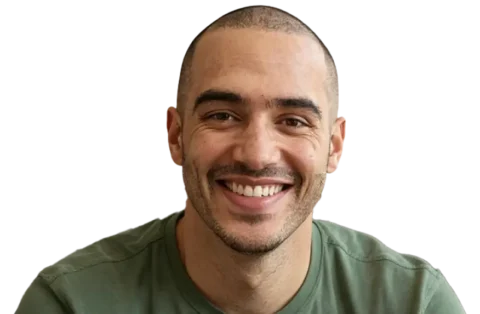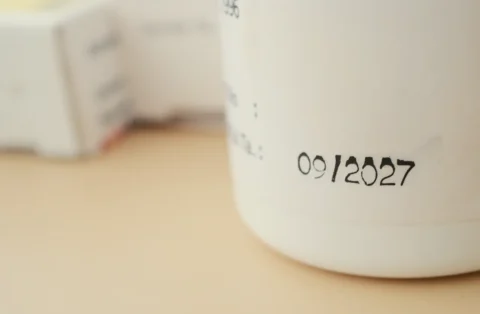Opioid Use Disorder (OUD) can feel overwhelming, but the good news is help is out there. Whether you’re struggling with dependency on prescription painkillers or opioids like heroin, you have the power to take back control of your life.
Finding the right path to recovery may seem daunting, but the truth is, there’s no one-size-fits-all approach. Different treatments work for different people, and it’s about finding what’s best for you.
This guide will walk you through various recovery options, including medication-assisted treatments, therapy, support groups, and lifestyle changes, so you can make an informed decision and start your journey to wellness.
Recognizing Opioid Use Disorder: What Is It?
Opioid Use Disorder (OUD) is a medical condition where someone is dependent on opioids, whether they be prescription painkillers like oxycodone or illicit substances like heroin.
OUD affects your brain’s reward system, creating intense cravings and withdrawal symptoms that can make quitting extremely difficult. But don’t lose hope—effective treatments are available, and recovery is possible.
1. Medication for Opioid Use Disorder (MOUD): A Lifeline for Many
One of the most effective ways to manage opioid dependence is through Medication for Opioid Use Disorder (MOUD). This approach uses FDA-approved medications like Suboxone, Methadone, and Naltrexone to help control cravings and withdrawal symptoms.
- Suboxone (a combination of buprenorphine and naloxone) helps reduce cravings while preventing misuse of the medication.
- Methadone can be taken daily under supervision to reduce withdrawal symptoms and cravings.
- Naltrexone blocks the effects of opioids, helping prevent relapse.
MOUD can be a game-changer for many in recovery, but it’s important to note that it’s just one piece of the puzzle.
Combining it with therapy, counseling, and support groups can make a huge difference in long-term recovery success.
2. Behavioral Therapy: Building a Strong Foundation
While medication can help manage the physical symptoms of opioid addiction, behavioral therapy tackles the psychological aspects of OUD. Therapy helps you understand the root causes of addiction, develop coping strategies, and manage triggers to prevent relapse.
Popular forms of therapy for OUD include:
- Cognitive Behavioral Therapy (CBT): Helps change unhealthy thought patterns and behaviors.
- Contingency Management (CM): Rewards positive behaviors, like staying clean, with incentives.
- Motivational Interviewing (MI): Focuses on building motivation to stay sober by exploring and resolving ambivalence toward recovery.
These therapies offer critical tools for long-term sobriety and personal growth, helping to address the mental and emotional aspects of addiction.
3. Support Groups: A Community That Understands
You don’t have to go through this alone.
Support groups are a great way to connect with people who genuinely understand what you’re going through. Peer support can provide emotional encouragement and practical advice from others who’ve been in your shoes.
Common support group options include:
- Narcotics Anonymous (NA): Follows a 12-step program similar to Alcoholics Anonymous.
- SMART Recovery: Focuses on self-empowerment and practical techniques to maintain sobriety.
- Online support communities: These can offer flexibility and accessibility, allowing you to connect with others without leaving home.
Building a network of support through these groups can be an invaluable part of recovery, offering a sense of belonging and shared experience.
4. Lifestyle Changes: A Holistic Approach to Wellness
Lasting recovery often involves more than just stopping drug use. By adopting healthy lifestyle changes, you can take proactive steps to improve your overall well-being and stay on track.
Consider:
- Exercise: Physical activity can boost your mood and reduce cravings by releasing endorphins.
- Nutrition: Eating a balanced diet can help your body heal and recover from the physical toll of addiction.
- Mindfulness and Meditation: Learning techniques to manage stress and anxiety may help prevent relapse.
These lifestyle changes support your physical health and enhance your emotional and mental well-being, creating a solid foundation for lasting recovery.
5. Finding the Right Care: Why a Tailored Approach Matters
No two people experience addiction the same way, which is why it’s crucial to find a treatment plan that’s tailored to your specific needs. The key is to explore your options and work with healthcare providers who can guide you through the process.
This may involve an initial assessment to understand your unique situation, followed by a discussion of the various treatment options available and the development of a personalized treatment plan.
QuickMD: A Trusted Partner for Suboxone and Beyond
At QuickMD, we specialize in providing compassionate, non-judgmental care for those battling opioid use disorder. Our doctors are highly knowledgeable in prescribing Suboxone and other medications for OUD, and we offer affordable online consultations for patients seeking immediate help.
But we also recognize that recovery goes beyond medication.
Here’s why QuickMD stands out:
- Accessible, same-day appointments: No more long waits—get help when you need it.
- Non-judgmental care: Our providers are dedicated to treating the whole person, not just the addiction.
- Flexible treatment options: Whether it’s MOUD, therapy referrals, or lifestyle recommendations, we tailor treatment plans to meet your unique needs.
Learn more about QuickMD’s OUD services and start your path to recovery today.
Final Thoughts: Your Path to Recovery Starts Now
Opioid Use Disorder is a serious condition, but with the proper support and resources, recovery is possible. Whether you choose medication, therapy, support groups, or a combination of all three, what matters most is taking the first step. Explore your options, find what works best for you, and remember that help is always available—whether from a therapist, a support group, or a compassionate provider like QuickMD.




